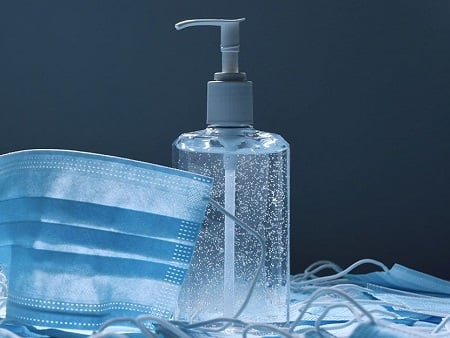Following the multiple side-effects associated with the use of alcohol-based hand sanitisers and some liquid soaps due to the “unsafe” active agents in them, the habitual use of alcohol-based hand sanitisers must be deliberately avoided, experts said.
The researchers in a critical appraisal of the applications and implications of chemicals in sanitisers and disinfectants said as much as it is possible, its use should be occasional when other options such as soap and warm water are not available because this would impact the safety of both users and the environment.
According to them, although the periodic application of the hand sanitiser seems like an effective on-the-go solution to preventing the spread of the virus, its many other associated hazards such as alcohol adulteration, deliberate and unintentional ingestion of alcohol-based hand sanitiser resulting in respiratory depression, irreversible blindness, intoxication, headache, central nervous system depression in some cases, call for caution.
They declared that when the use of alcohol-based hand sanitiser (ABHS) is unavoidable, users should ensure the use of low concentration alcohol at an average of 60 to 70 per cent as higher concentrations could be more deleterious.
This was published in the 2020 edition of the EXCLI Journal of Experimental and Clinical Sciences.
The expert, who asked that alcohol-based hand sanitiser should be kept far away from heat, flame, spark-source or any oxidizing agents to avoid fire incidence since they are flammable, urged that children should not be allowed direct access to alcohol-based hand sanitiser as the fatality of accidental ingestion in children is worse and incidences are on the rise.
In the case of liquid soaps, they advised that soaps with triclosan or triclocarban and other questionable safety profile should be avoided.
They suggested the incorporation of skin-protecting emollient in sanitiser and liquid soap in order to prevent after-use skin dryness, skin breaking/cracking as well as reduce alcohol penetration through the skin.
In addition, general cleanliness and good hygiene is imperative to keep microbial infections at bay, even as consistent tidiness will minimise the need for repetitive use of liquid soaps and ABHS.
The enormous release of adulterated and uncontrolled infection-preventing household products such as the antibacterial active liquid soap and ABHS in the global markets have several potential adverse health effects on human such as dehydrated skin, irritation, poisoning, and cancer among others.
YOU SHOULD NOT MISS THESE HEADLINES FROM NIGERIAN TRIBUNE
WATCH TOP VIDEOS FROM NIGERIAN TRIBUNE TV
- Let’s Talk About SELF-AWARENESS
- Is Your Confidence Mistaken for Pride? Let’s talk about it
- Is Etiquette About Perfection…Or Just Not Being Rude?
- Top Psychologist Reveal 3 Signs You’re Struggling With Imposter Syndrome
- Do You Pick Up Work-Related Calls at Midnight or Never? Let’s Talk About Boundaries






